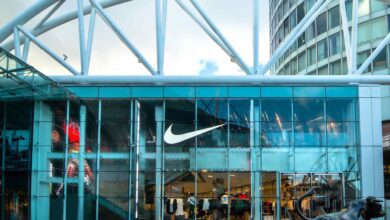JD Sports and the Footasylum merger saga – what went wrong?
The three-year battle between the CMA and JD Sports recently came to an end after the group announced the sale of the Footasylum to a German private equity investor Aurelius Group for £37.5m - resulting in a £53m loss for the sports retailer. Retail Sector takes a look at the complex timeline of the deal to see what went wrong.

Register to get 1 free article
Reveal the article below by registering for our email newsletter.
Want unlimited access? View Plans
Already have an account? Sign in
Following JD Sports’ acquisition of Footasylum for £91.1m in March 2019, The Competition and Markets Authority (CMA), a non-ministerial government department responsible for strengthening business competition and reducing anti-competitive activities, announced it had launched an investigation into the deal on 24 July 2019, citing that it would examine whether the combination may result in a “substantial lessening of competition”.
In December 2019, the then JD Sports CEO Peter Cowgill defended the proposed takeover, alleging that major owners of sportswear brands, such as Nike and Adidas, are its main competitors across the retail sector and that the merger would instead enhance both Footasylum and JD Sports’ offerings in face of such large competition. He said the acquisition would “strengthen the firm’s supply chain and deliver quicker customer services and products to customers, while still being in competition with the retail giants on the highstreet, keeping healthy competition with those companies that have the ability and revenues to do so”.
Looking at the financial reports of both Nike and Footasylum, Cowgill’s argument that the CMA’s initial report was “fundamentally flawed” and “completely misunderstood” its market to an “alarming degree”, can be seen in the fact that Nike reported gross profits of $15.95bn (£13.21bn) for the year ended 31 May 2018 – compared with Footasylum’s gross profits of just £87.6m over a similar period.
At the time Neil Wilson, chief market analyst for Markets.com, explained to the BBC that “while a tie-up would give [JD Sports and Footasylum] a pretty dominant position in supplying these two brands on the High Street, this matters a lot less now you have Nike and Adidas significantly ramping up their direct-to-consumer offering. Retail changes all of the time and the pandemic has accelerated trends that mean blocking JD Sports from acquiring Footasylum increasingly makes less sense.”
Despite this, on 6 May 2020, the CMA proceeded to go ahead with its analysis and blocked the acquisition while also issuing an interim order during an in-depth phase 2 merger investigation preventing the companies from integrating further, in order to ensure the businesses continued “to compete against one another as they would have before the deal took place’.
The order prohibited JD Sports and Footasylum from exchanging commercially sensitive information without prior consent and required the companies to immediately alert the CMA of any chance that this information may have been shared.
However, as the case seemed like it was coming to an end, in November of that year, the Competition Appeal Tribunal (CAT), which hears and decides cases related to competition or economic regulation issues, overturned the CMA’s decision to block JD Sports acquisition of Footasylum, ruling that the watchdog “acted irrationally” when it collected evidence against the deal.
The CAT stated that the CMA should have asked for more information on the impact of the Covid-19 pandemic on JD Sports and Footasylum, despite the CMA claiming the retailers were “not in a position to provide robust evidence on the medium to long term impact of coronavirus” during the final stages of its investigation and instead remitted the case back to the CMA for reconsideration.
It seemed then that public favour was finally swinging in the direction of JD Sports. However, this quickly changed on 5 July 2021, where it was unearthed that Cowgill secretly met Barry Brown, CEO of Footasylum, in a car park in Bury to exchange confidential and commercially sensitive information, which at that point had been deemed by the CMA under an order as forbidden.
During this meeting, it has been revealed that they discussed information about Footasylum’s financial performance, the planned closure of six Footasylum stores, with the locations of at least two being revealed, Footasylum’s contract negotiations with its transport and delivery provider, and contract negotiations for the renewal of Footasylum’s head office space.
The content discussed by the two bosses amplified the concerns that the CMA originally highlighted and it finally concluded in November 2021 that the merger could result in a worse deal for Footasylum shoppers across the UK, potentially resulting in customers being faced with higher prices, fewer discounts, and a smaller selection of products in-store.
It is interesting to think then, if the secret car park meeting never took place would the CMA’s original ruling have been overturned? Without the smoking gun provided in that Bury car park to bring its focus back onto the firm’s plans for Footasylum would JD Sports be sitting now at least £53m better off?






